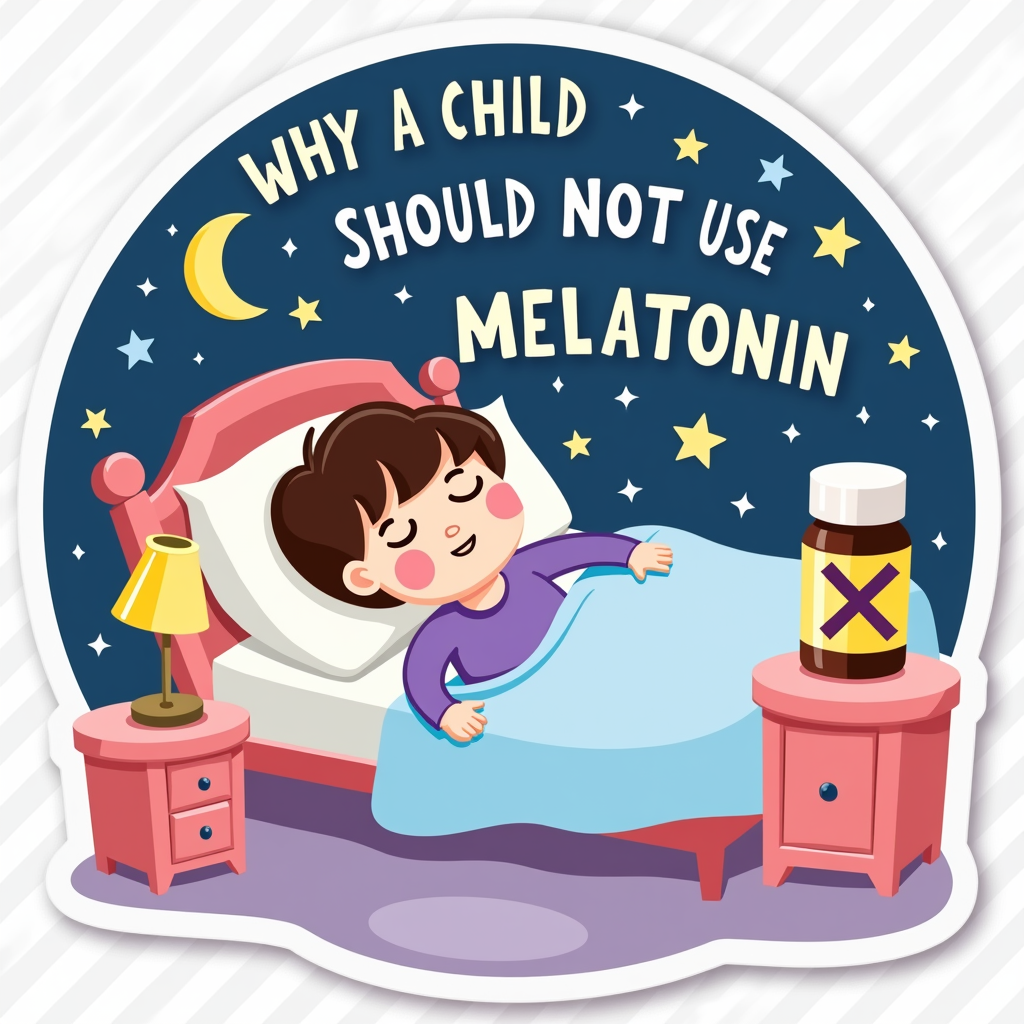
Melatonin is a hormone that is naturally produced in the brain and plays an important role in regulating the sleep-wake rhythm. More and more parents are wondering whether melatonin is safe and suitable for their children, especially for sleep disorders. In this article we examine the security, possible benefits and risks of melatonin intake in children and give practical recommendations.
What is melatonin and how does it work?
Melatonin is a hormone that from the pineal gland (Glandula Pinealis) is produced in the brain. Production increases in the evening when it gets dark and signals to the body to prepare for sleep. In some children, however, this process can be disturbed, e.g. B. by:
- Irregular daily processes
- Light sources, especially blue light from screens
- Health problems such as ADHD or autism
Is melatonin safe for children?
Studies show that short -term taking melatonin is generally secure in children. However, the long -term effects have not yet been sufficiently researched. Here are some important points:
- Short -term effect: Melatonin can help children fall asleep faster and improve the quality of sleep.
- Possible side effects: Occasionally, slight headaches, nausea or daily fatigue can occur.
- Long -term intake: The influence on growth, hormone balance and other aspects in children is currently still unclear.
It is important to understand that melatonin should not be the first choice to treat sleep disorders in children. Problems can often be solved due to changes in the lifestyle.
When can Melatonin be helpful?
Melatonin can be useful in certain situations, especially if the child:
- Suffers from sleep problems through time change (jet lag).
- Has sleep disorders due to neurological problems such as autism or ADHD.
- Developed an irregular sleep-wax rhythm based on external factors.
However, a doctor should always be consulted before taking melatonin.
Important information for parents
If you think about taking melatonin for your child, please note the following recommendations:
- Consult a doctor: Only one specialist can assess whether melatonin is suitable for your child.
- Start with a low dosage: The recommended dosage for children is between 1–3 mg before going to bed.
- Observe the effect: Make sure your child reacts to melatonin and whether side effects occur.
- Promote healthy sleeping habits: Limit the screen time in the evening, adhere to fixed bedtime and create a quiet sleeping environment.
Alternative solutions
Before you use melatonin, you should try the following natural measures:
- Develop a regular bedtime routine.
- Avoid stimulating activities before going to bed.
- Reduce the influence of blue light at least 1–2 hours before sleeping.
- Promote relaxing activities such as reading or meditation.
Conclusion
Melatonin can be a helpful option for children with certain sleep disorders, but should not be considered the first choice. It is advisable to first try natural solutions and only use melatonin after consultation with a doctor.
The key to relaxing sleep lies in the promotion of healthy sleeping habits that contribute to general health and well -being in the long term.

